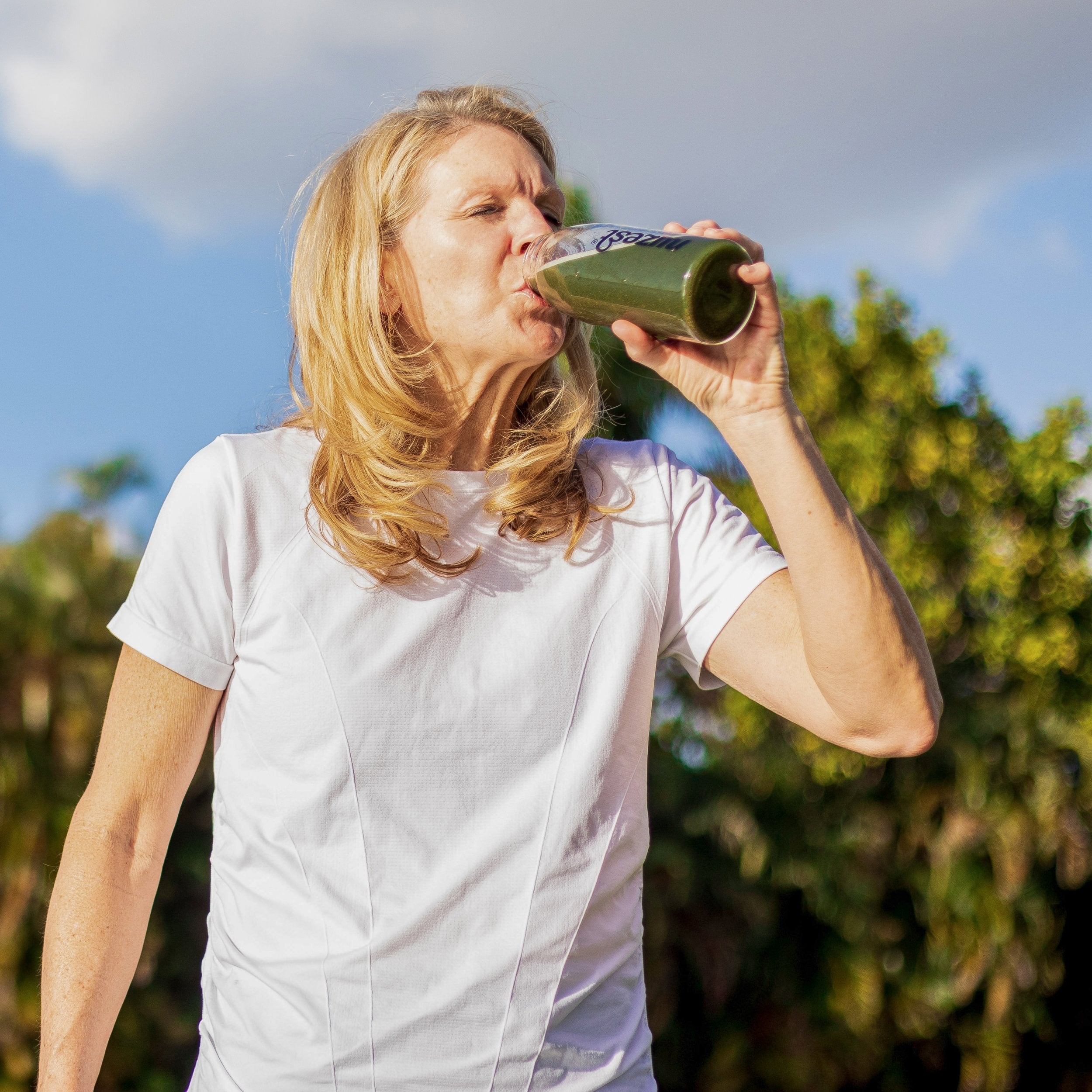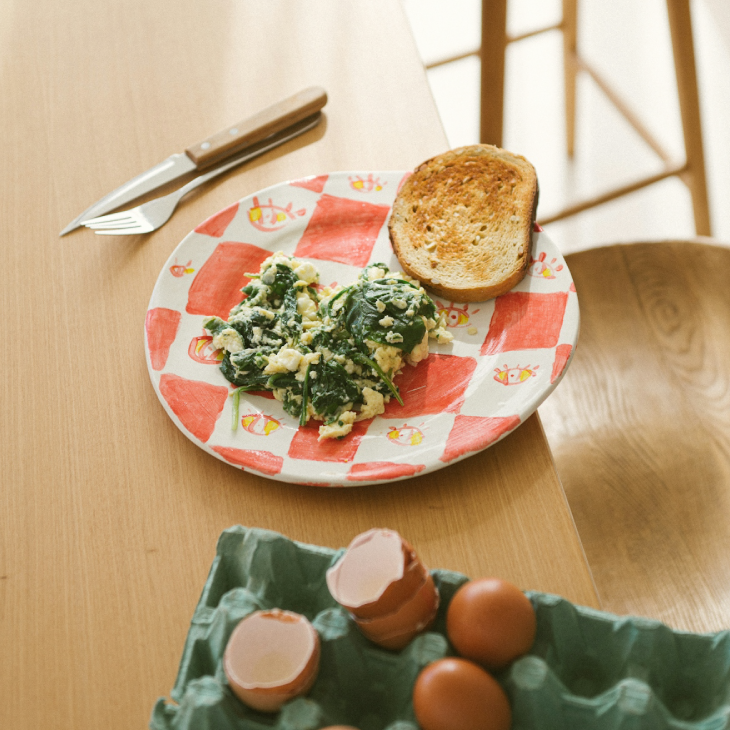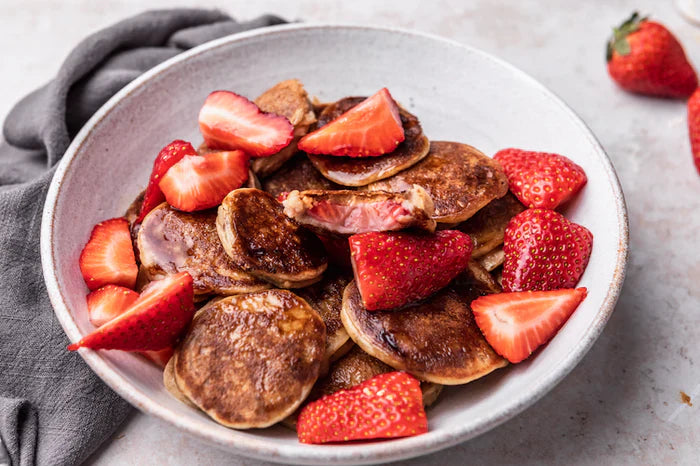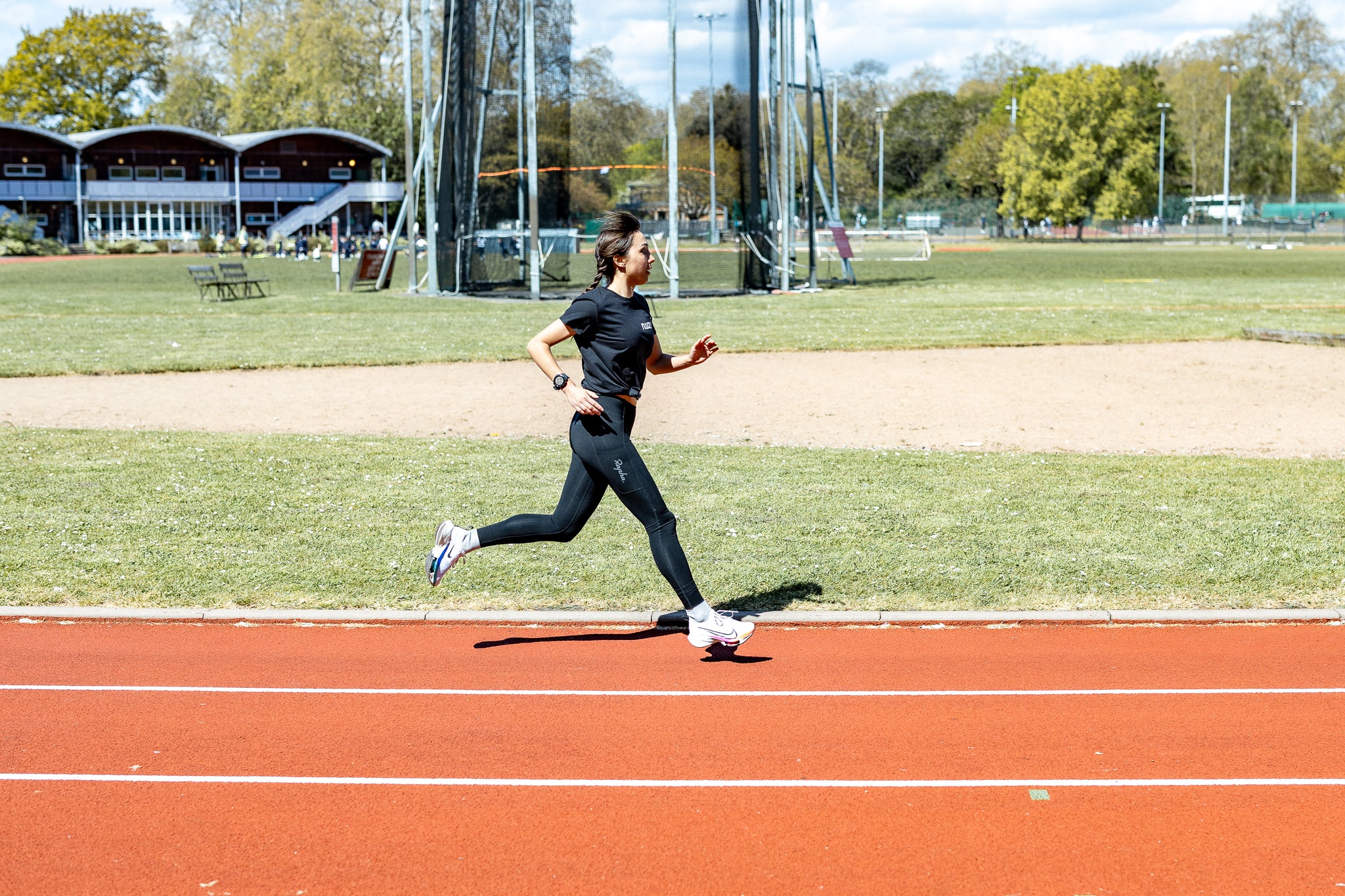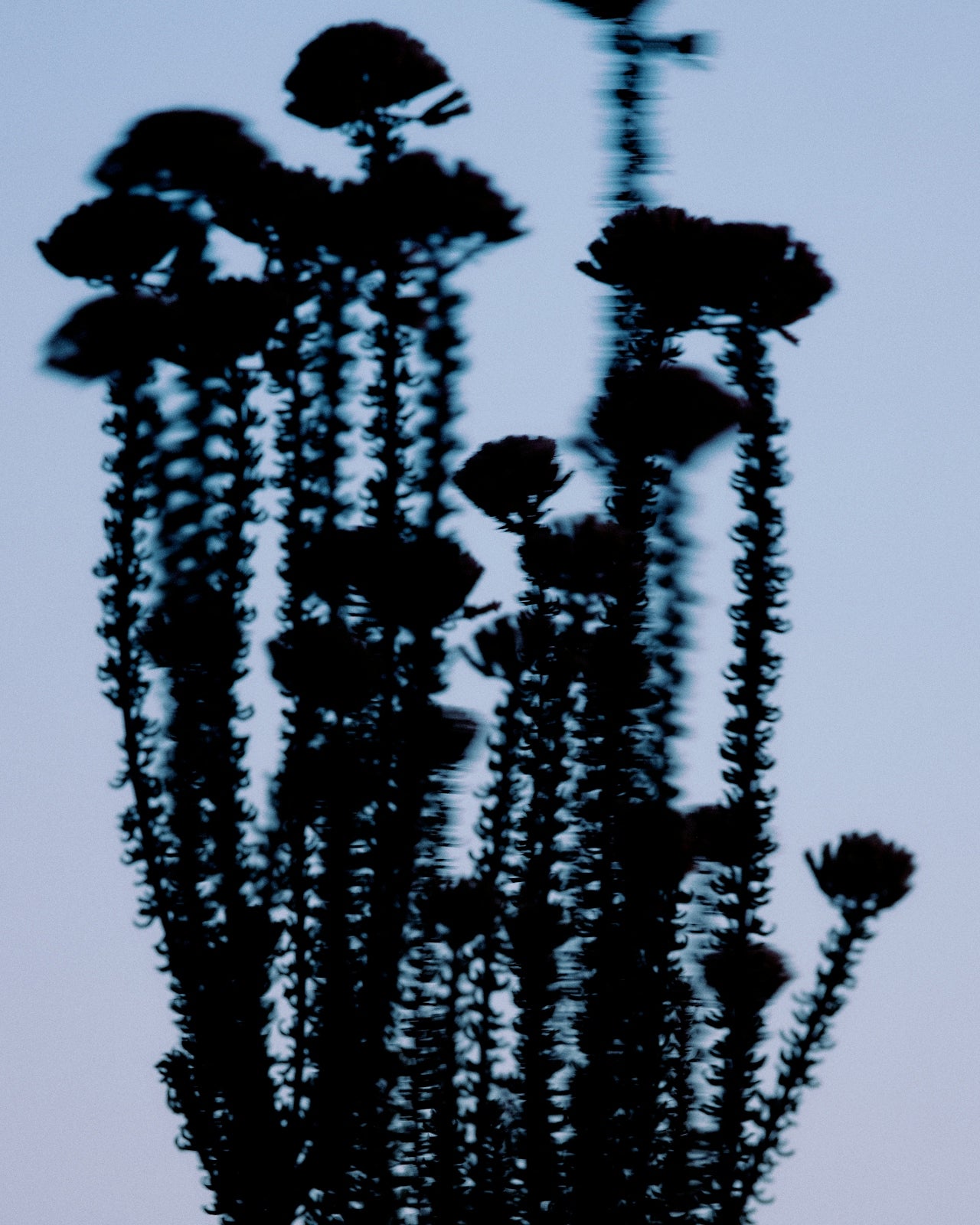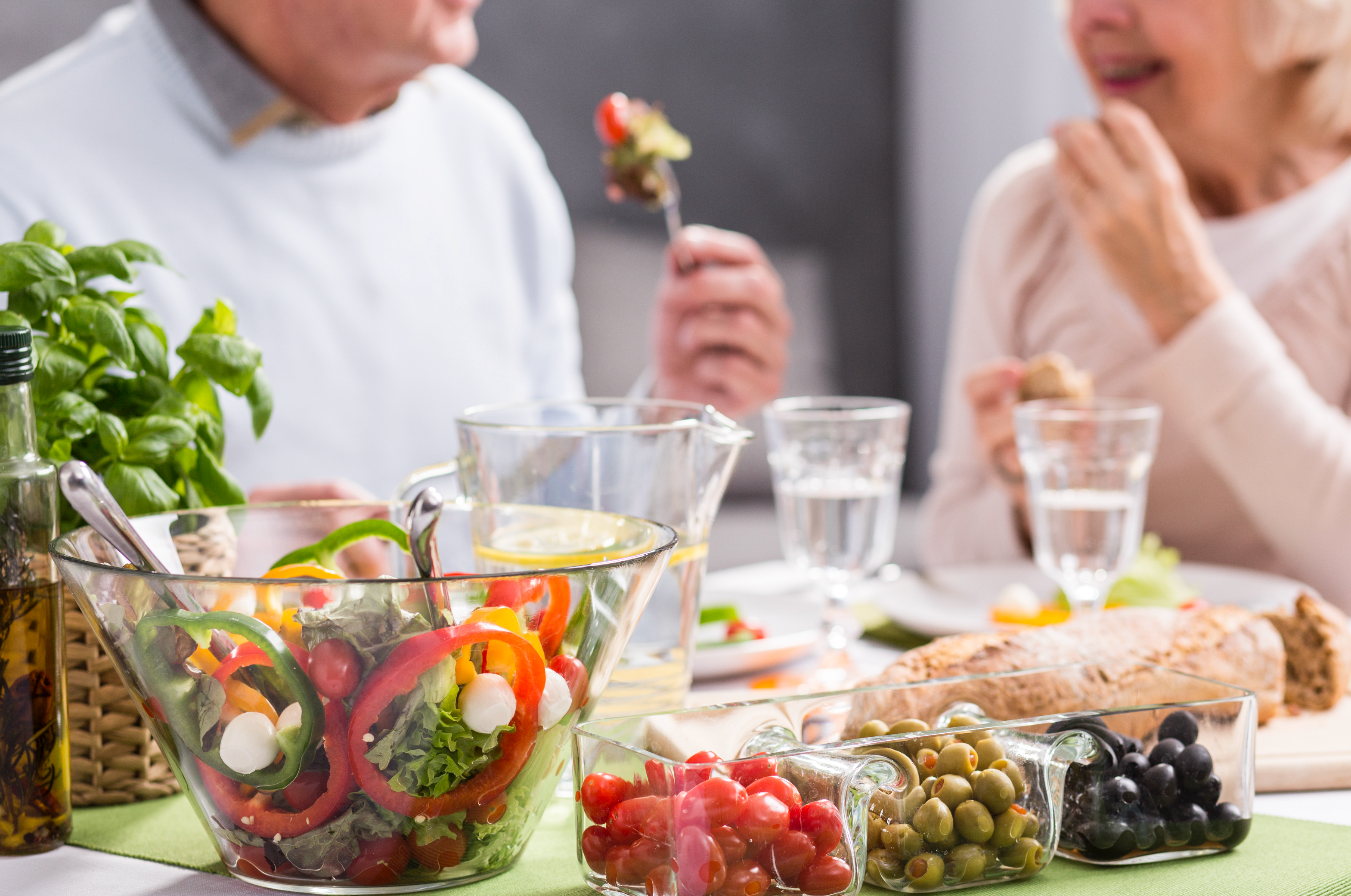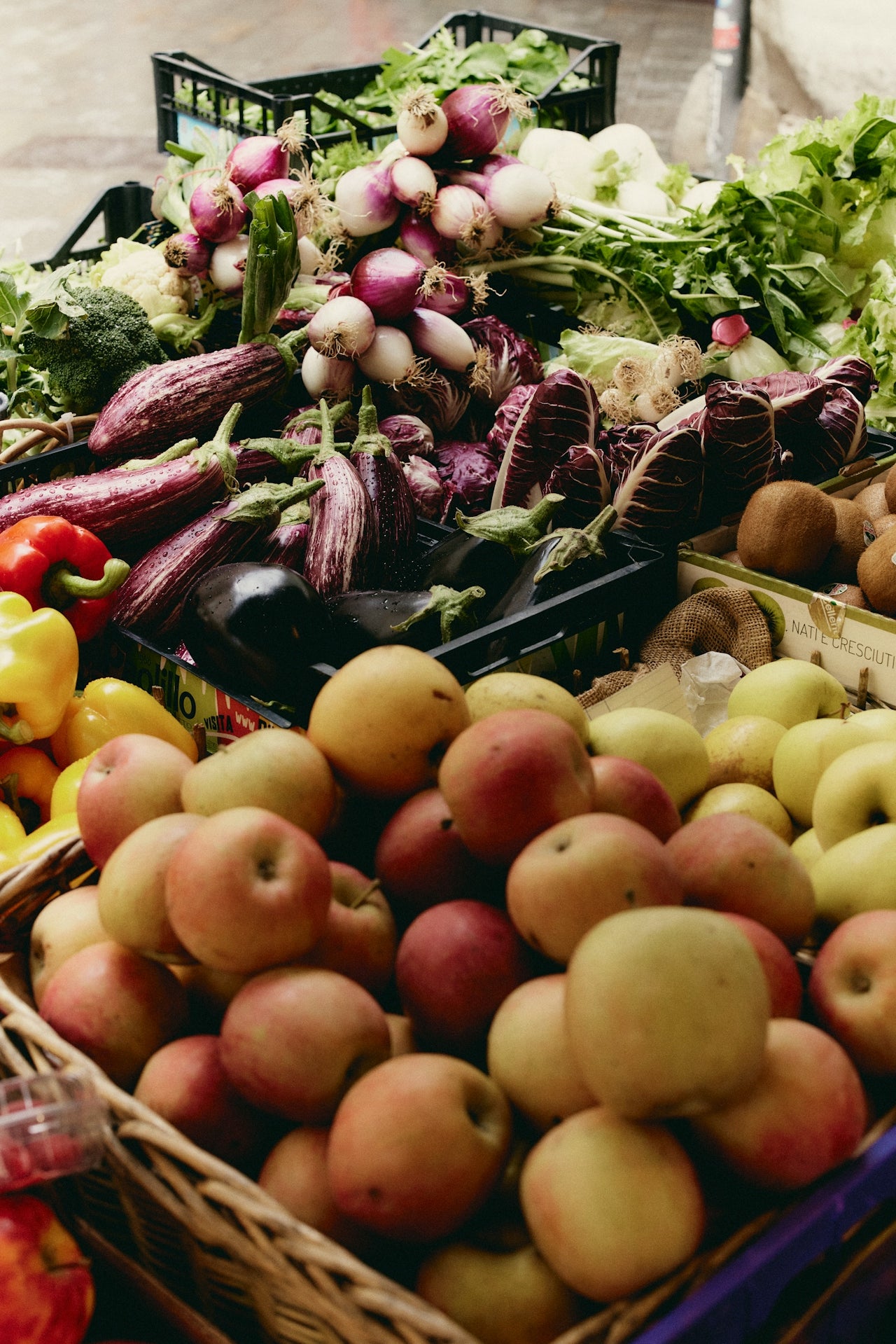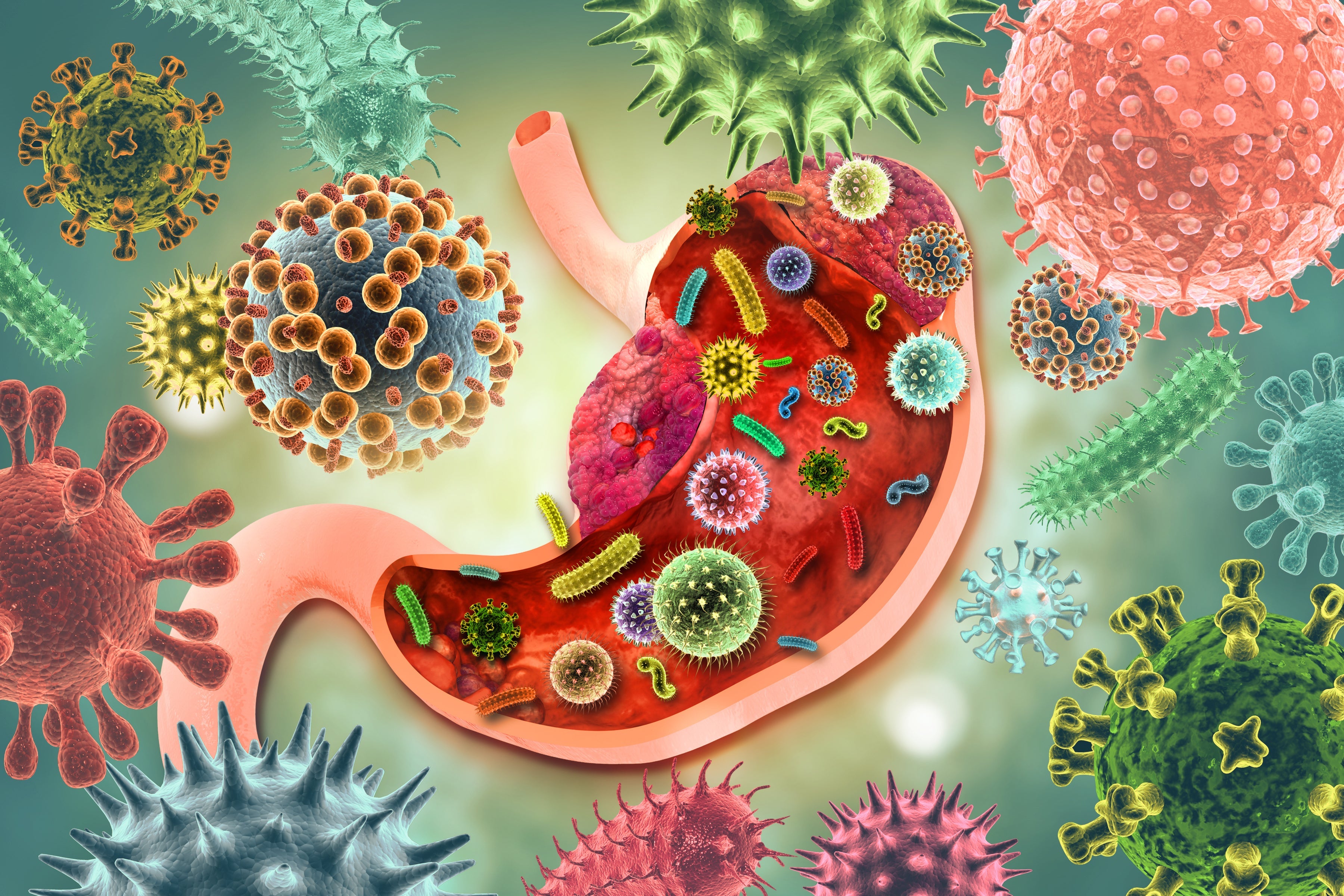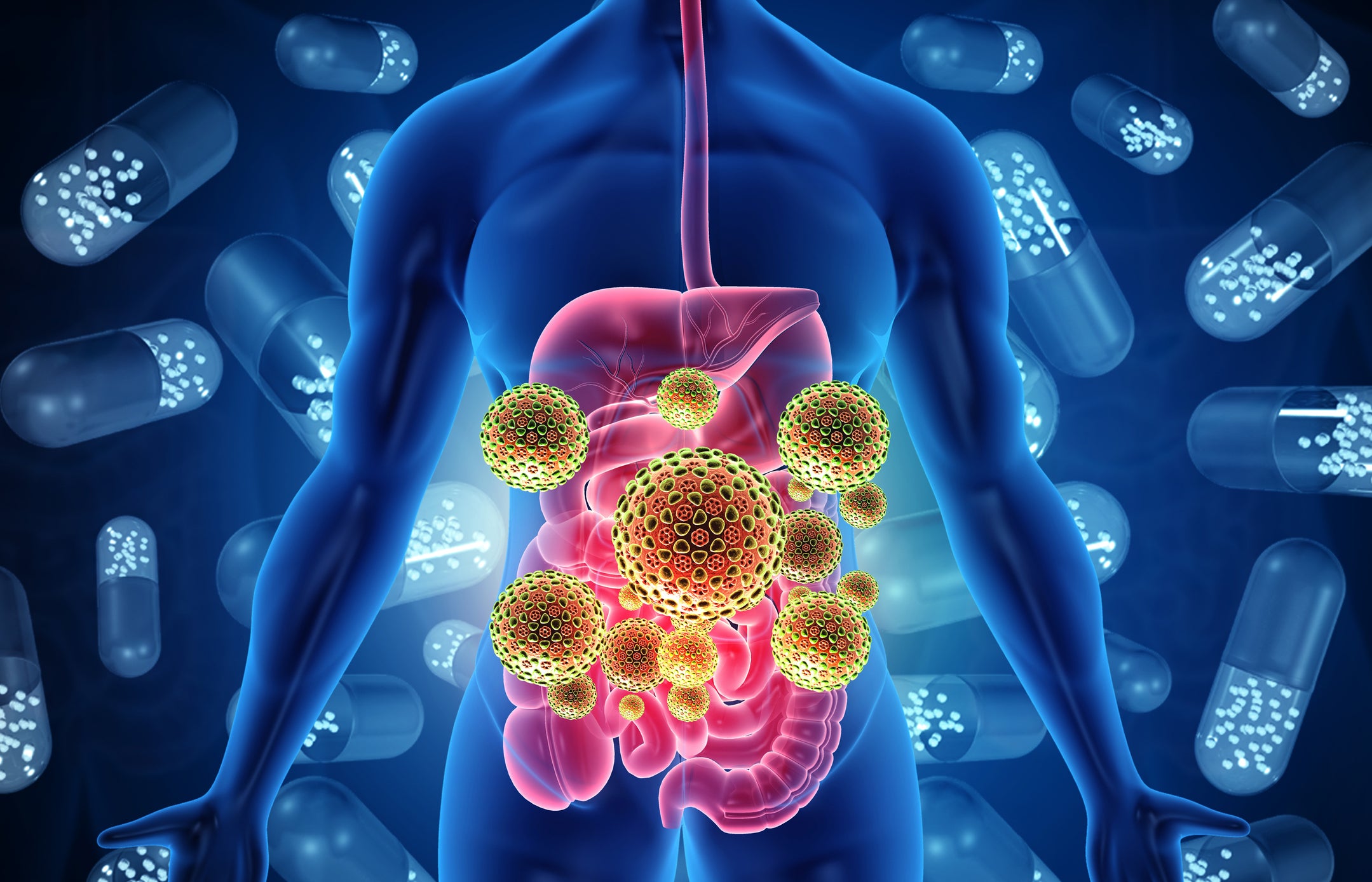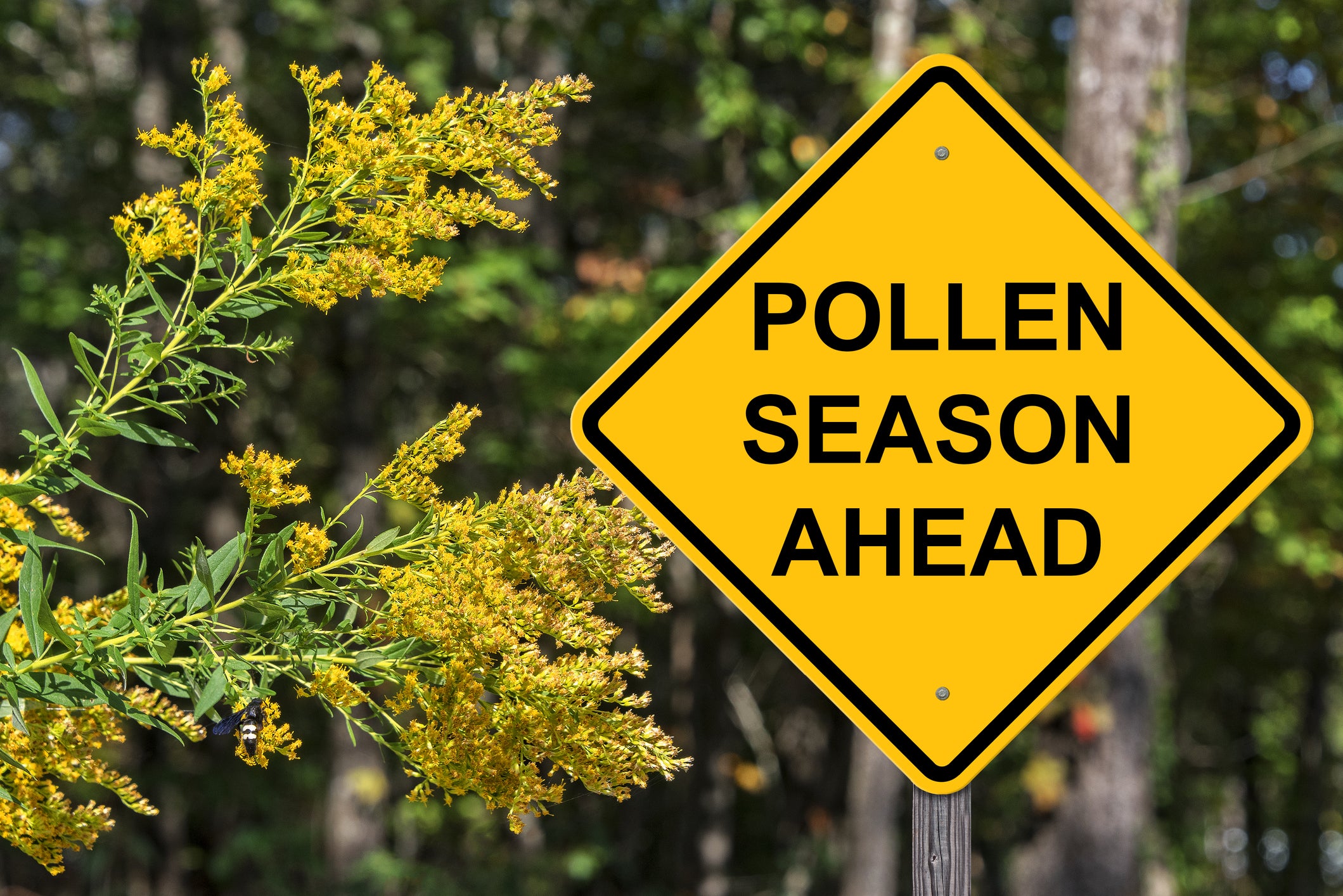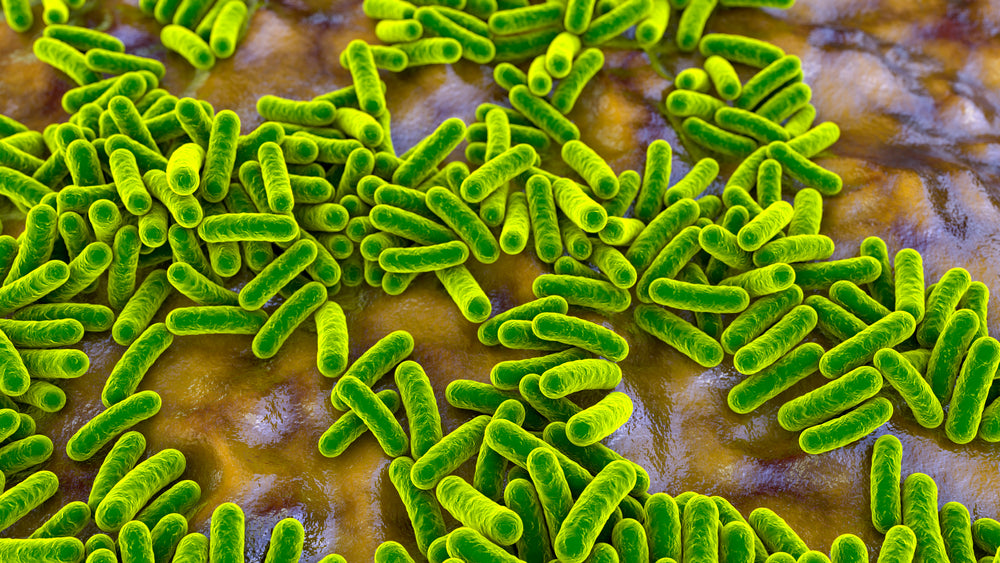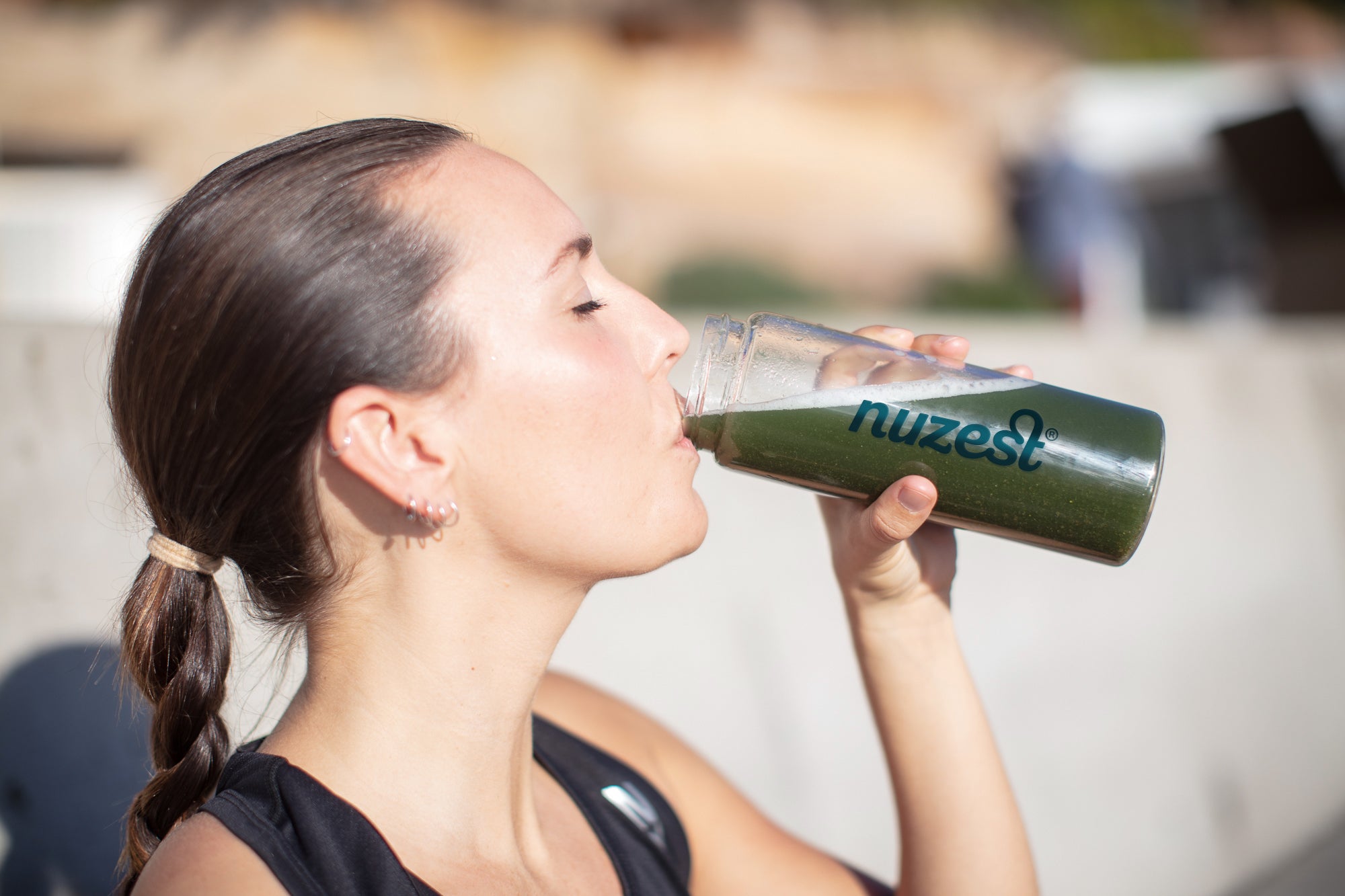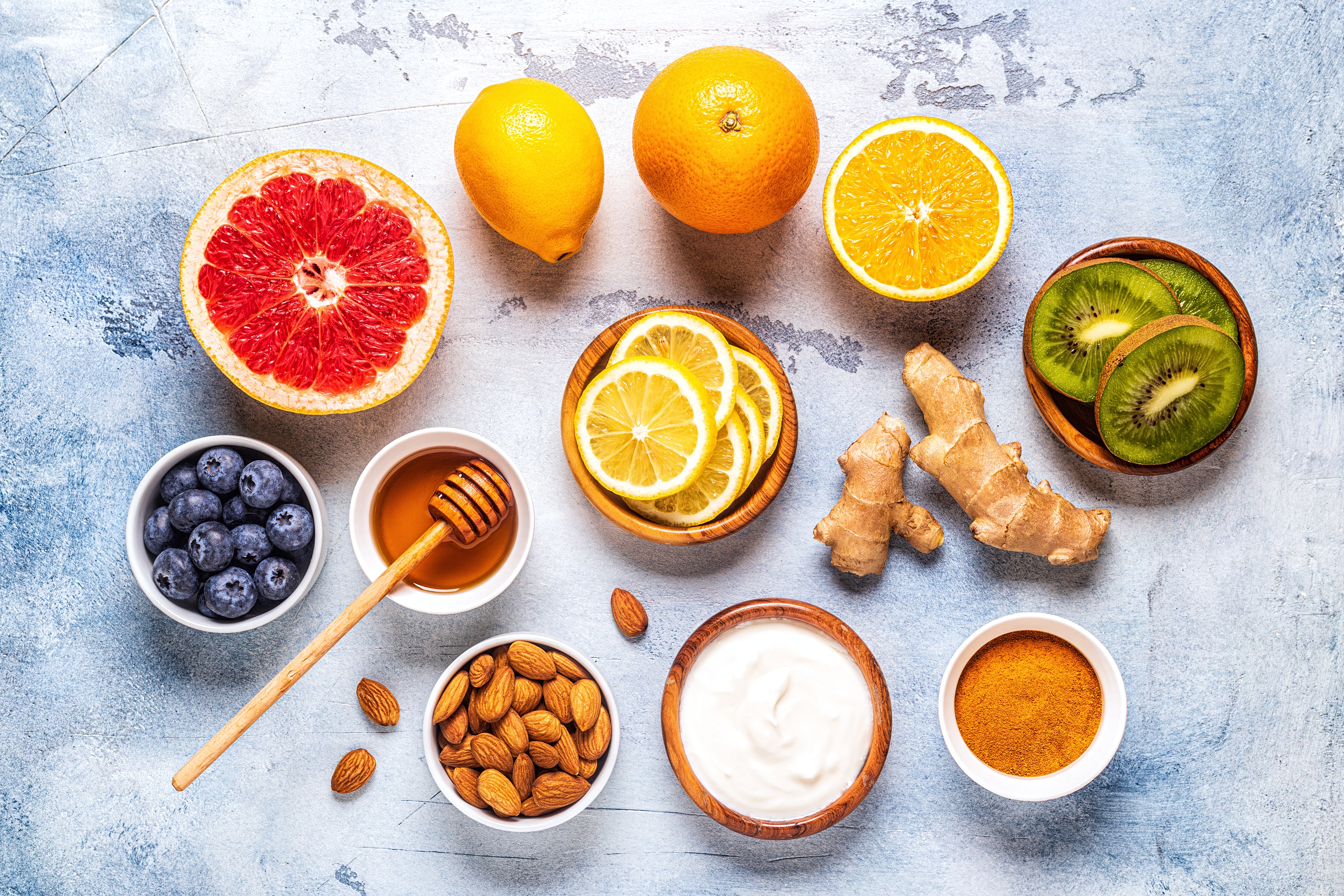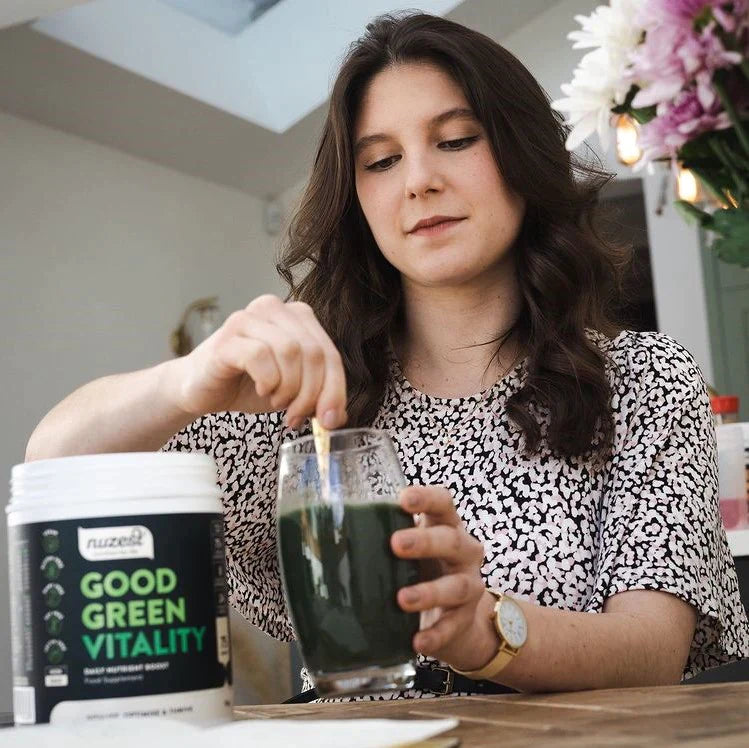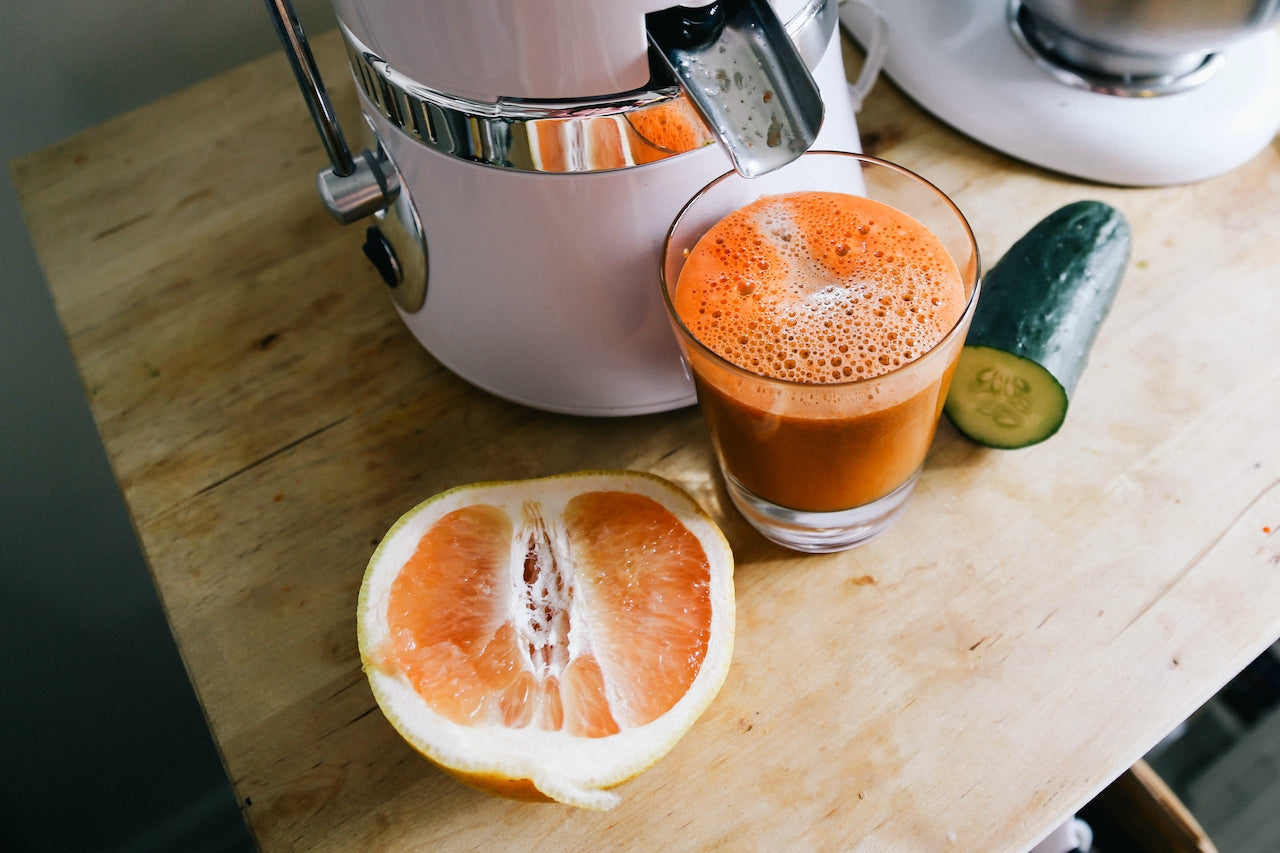Pea protein is a popular choice found amongst vegan protein powders, and you’re likely to see many different options on any given health food store shelf. Commonly mistaken for sweet peas, pea protein is derived from field peas, which can be green or yellow. So what’s the distinction, and is there any reason you’d choose one over the other? Our overview of green peas vs. golden peas (commonly known as yellow peas) will give you answers to these questions plus provide a comparison of their benefits, taste, and nutrition.
What Are Green Peas, and How Do They Differ From Golden Peas?
First, a clarification: the green peas used in protein powder aren’t sourced from the sweet variety, which are much higher in carbs. Field peas, the kind used to make split pea soup, are the kind sourced in the making of pea protein powder. Found in green and yellow varieties, their significantly higher protein content1 makes them a better and more obvious choice. Yellow peas are also synonymous with golden peas.
How Do Green Peas and Golden Peas Taste?
Aside from their color, green peas differ from golden peas in that they have a stronger taste. Golden peas have a milder flavor and nutty taste, making them the preferable option for vegan protein powder.
Sourcing — It Matters
Though their color (and taste) may differ, green peas and golden peas have largely similar benefits, with sourcing as their main distinction. Many green pea suppliers (and many yellow pea suppliers as well) are found in China, which is quickly becoming one of the largest global players in the pea protein supply chain.2 In addition to a lack of oversight and regulation, China’s history of food safety incidents3 make it a less than optimal choice for the sourcing of protein powder.
When choosing a protein source you’ll be consuming on a regular or daily basis, sourcing becomes an important factor to consider. Where and how the protein in your vegan protein powder is produced matters. That’s why Nuzest’s protein powder is sourced from premium European golden peas that are grown in Northern France, a region known for its quality soil and ethical environmental practices. That, in addition to the transportation, isolation processes, and testing practices, all play a role in making Clean Lean Protein so unique.
Benefits of Green Peas Vs. Golden Peas
Both green and golden peas have a number of impressive benefits. And the milder, responsibly-sourced golden peas found in Clean Lean Protein have the following nutritional profile:
- 12 mg Calcium
- 50 mg Potassium
- 11 mg Magnesium
- 1.4 mg Zinc
- 10 mcg Selenium
- All 9 essential amino acids
High in Protein and Iron
One serving of the golden peas in Clean Lean Protein by Nuzest delivers 18-21 grams of protein (depending on flavor) and 3.6 grams of iron, or 20% of the recommended daily intake. With anemia, or low iron, being a primary nutritional concern,4 and with more than 7 million women in the U.S. having an iron deficiency,5 supplementing your daily iron intake with a high-quality pea protein can be a valuable step towards meeting your daily iron needs.
Although the iron in plant foods is often less absorbable than in animal foods, the golden peas found in Clean Lean Protein have been found to be 98% digestible. This is partly because they are free of lectins, which are “anti-nutrients” that can make digestion and absorption of legumes like peas difficult.
Gut Health
Fiber is one of the most valuable carbohydrates to eat everyday for keeping your gut healthy and happy. Adequate fiber can help the gut lining remain intact,6 reducing the effects of leaky gut, a condition where toxins and undigested foods recirculate throughout the bloodstream. A part of their impressive nutrient profile, the high fiber content of yellow peas benefits your digestive system by aiding in regular bowel movements and reducing the amount of cholesterol in your bloodstream.7 All the more reason for including them in your daily diet!
Increases Muscle Mass
If your goal is to build muscle, look to pea protein powder, which has been shown to increase muscle mass as much as whey protein in men supplementing with 50 grams a day.8 So if you’re lifting weights regularly.9 consuming pea protein powder can be a helpful way of maximizing your efforts.
May Reduce Cholesterol and Aid in Weight Loss
While not yet studied in people, several animal studies have found that pea protein powder can help bring down cholesterol, one of the risk factors for heart disease.10,11,
Pea protein powder has also been studied for its satiating qualities: participants in one study ate fewer calories from pizza after consuming pea protein powder about 30 minutes before their meal.12 In addition, scoop for scoop, pea protein is just as good as whey protein when it comes to filling you up.13,14
Good for Many Diets and Lifestyles
Naturally free from the top 8 allergens (soy, gluten, peanuts, tree nuts, fish, shellfish, dairy, and eggs), the golden peas found in Clean Lean Protein are a high-quality vegan protein without any traces of gluten or dairy. Its simple, clean, and allergy-friendly composition make it a good fit for a wide number of diets and lifestyles.
Whether you’re eating vegan, vegetarian, keto, or gluten free, the golden peas used in Clean Lean Protein can easily be incorporated to add essential nutrients to your daily diet. And because of the removal of lectins during the isolation process, golden pea protein powder can also be tolerated by those on Paleo or Primal diets.
For the same reason, if you’re following a special diet, such as the candida diet, Whole 30, AIP, or low FODMAP, pea protein can be part of either the diet itself, such as the candida diet, or during the reintroduction phase, such as when reintroducing foods on the AIP or Whole 30 diets.
Coupled with its ability to increase your protein and iron intake, build muscle and support heart health, it's no wonder pea protein has become one of the most popular and beloved forms of vegan protein powders on the market today.
Are Green Peas and Golden Peas a Complete Protein?
While many plant-based protein sources, such as soy or rice, aren’t considered complete, the green peas and golden peas used to make pea protein are an exception. With the exception of methionine, Clean Lean Protein’s amino acid profile meets more than the daily amount recommended by the World Health Organization.15 And because it’s generally understood that you don’t need to get all your amino acids in one meal for them to work effectively, vegans and vegetarians can get their additional methionine from other plant-based sources, such as brazil nuts, lentils, or tofu.
Are Golden Peas Better Than Green Peas in Protein?
Both golden peas and green peas have equal amounts of protein, making either a viable option for your pea protein powder. Keep in mind, though, that processing matters, since quality and absorption can be affected by the process used to isolate the pea protein.
What Do I Choose: Green Pea Protein or Golden Pea Protein?
In most cases, you’ll find that the pea protein powder you’re eyeing is either sourced primarily from golden peas, or some mixture of both green and golden. Since both have the same nutrient profile, offer specific health benefits, and are suitable for a variety of diets and lifestyles, it comes down to sourcing, quality, and taste. With the understanding that this will be a supplement taken on a daily or near-daily basis, it’s worth knowing the company’s practices for extracting the pea protein, their source, and other details, such as their use of third-party testing.
Why Use Pea Protein?
An essential part of your diet at any age, protein supports various aspects of health—from adequate muscle tissue and tone, to healthy heart function and overall strength and energy levels. Of the many protein supplement options, pea protein is unique in that it is highly absorbable, allergen-friendly, and a plant-based source for all 9 essential amino acids. It mixes easily into your liquid of choice, but is also versatile enough to be used in a wide variety of recipes, making it easy to incorporate into your daily diet. And the pea protein in Clean Lean Protein by Nuzest undergoes strict testing throughout its processing.
How to Use Pea Protein
If you think only of “morning smoothie” when you think of ways to use pea protein, it’s time for you to get out of the protein box. Pea protein is definitely not limited to breakfast, and can play an important role throughout your day, such as a strategic, before or after workout snack or smoothie to help boost performance. And a smoothie is just the tip of the iceberg when it comes to recipe options: pea protein can also be added to your baked goods and cooked up in your savory sauces, soups, or breads. And of course, let’s not forget about those smoothies and smoothie bowls, which offer even more flavor profiles and delicious combination options.
While both green peas and golden peas have the same nutrient profile and health benefits, the milder taste, quality sourcing, and high digestibility of golden peas make them an ideal choice for your pea protein powder source.
References:
- https://extension.illinois.edu/blogs/simply-nutritious-quick-and-delicious/2019-09-27-split-peas-are-they-peas-or-lentils
- https://www.prnewswire.com/news-releases/market-research-of-pea-protein-industry-in-china-300708276.html#:~:text=China%20has%20become%20one%20of,are%20located%20in%20Shandong%20Province.
- https://www.ncbi.nlm.nih.gov/pmc/articles/PMC6924309/
- http://apps.who.int/iris/bitstream/handle/10665/43894/9789241596657_eng.pdf;jsessionid=2A634292A3BC5059BEF43716A049434C?sequence=1
- https://pubmed.ncbi.nlm.nih.gov/9091669/#:~:text=These%20prevalences%20correspond%20to%20approximately,women%20have%20iron%20deficiency%20anemia.
- https://www.ncbi.nlm.nih.gov/pmc/articles/PMC7146107/#:~:text=It%20offers%20the%20host%20benefits
- https://www.mayoclinic.org/diseases-conditions/high-blood-cholesterol/in-depth/cholesterol/art-20045192#:~:text=Soluble%20fiber%20can%20reduce%20the,to%204%20grams%20of%20fiber.
- https://www.ncbi.nlm.nih.gov/pubmed/25628520
- https://www.ncbi.nlm.nih.gov/pubmed/25169440
- https://www.ncbi.nlm.nih.gov/pubmed/20077421
- https://www.ncbi.nlm.nih.gov/pubmed/19012614
- https://www.ncbi.nlm.nih.gov/pubmed/22916818
- https://www.ncbi.nlm.nih.gov/pmc/articles/PMC4400298/
- https://www.ncbi.nlm.nih.gov/pubmed/18345020
- https://www.ncbi.nlm.nih.gov/books/NBK234922/




